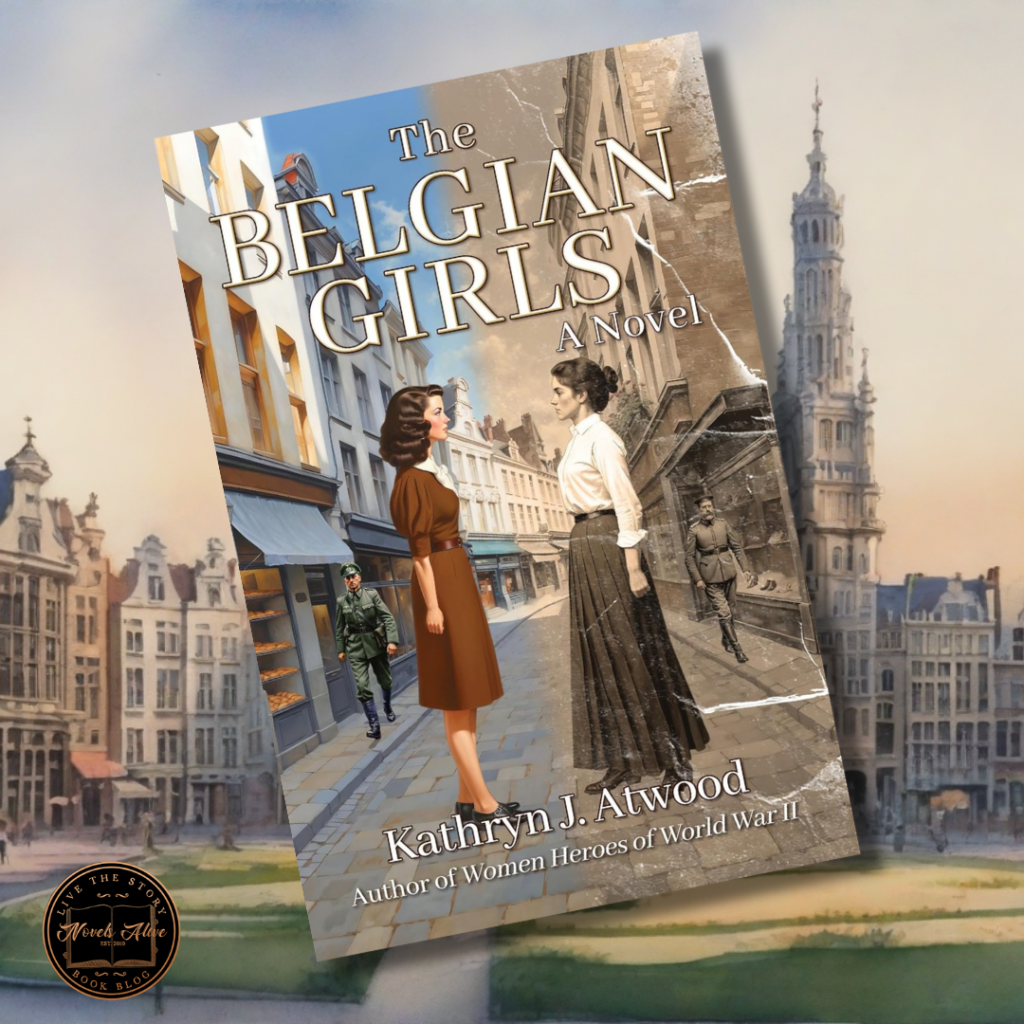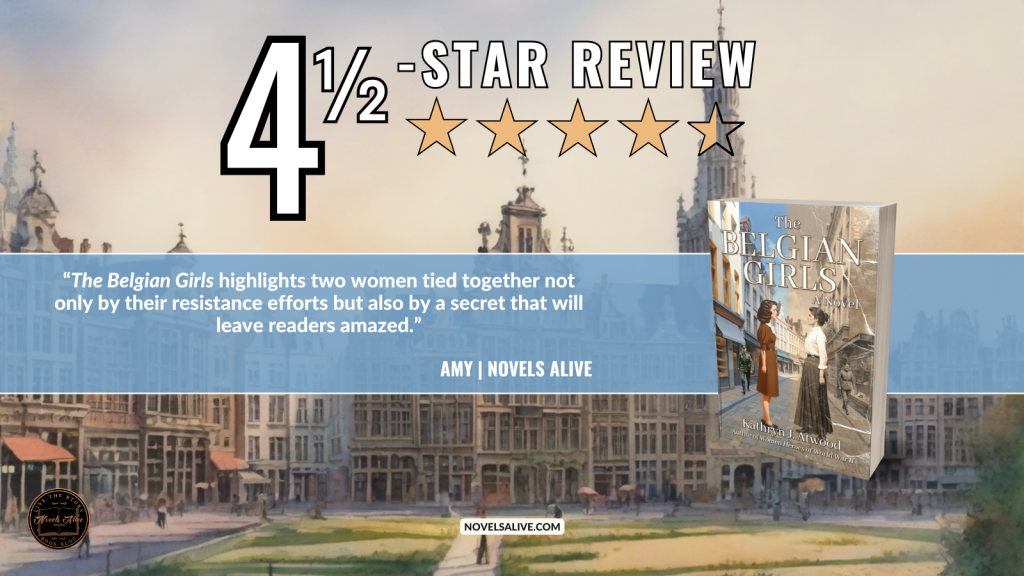

Publication Date: May 8, 2025
I have just been condemned to death. I will be shot tomorrow. Long live the King. Long live Belgium.
When the Germans overrun Brussels during the First World War, Gabrielle is infuriated to see her newfound happiness shattered. It isn’t long before she is faced with an impossible choice. Three decades later, shy and bookish Julienne moves to Brussels with her widowed father at the height of the Nazi occupation and is horrified to witness the city’s callous treatment of Jews.
In this dual timeline novel inspired by the life of Belgian spy Gabrielle Petit, two very different young women must discover their inner strength to become the heroes their city needs. And when loyalties are tested and decades-old secrets are revealed, their legacies will become entwined forever.
Written by historian and storyteller Kathryn J. Atwood, The Belgian Girls is a tale of hope, forgiveness, and the healing power of friendship.


When Julienne and her father move to Brussels from their small community in 1942, she encounters a world where she must stand up for others.
Her fictional acts of heroism unfold alongside a dual storyline that showcases the life of Gabrielle Petit, who led the Resistance during World War I. With The Belgian Girls, author Kathryn J. Atwood celebrates the contributions of women in the war efforts.
The author deftly alternates between the two characters and their timelines to weave a moving piece of historical fiction filled with bravery and courage.
Young readers will especially appreciate the author’s skill in developing the characters and placing them in pivotal roles where they stay true to their beliefs.
The Belgian Girls highlights two women tied together not only by their resistance efforts but also by a secret that will leave readers amazed.

 Kathryn has written six young adult collective biographies on women and war for the Chicago Review Press. The Belgian Girls, Kathryn’s first novel, was born of her admiration for the European resisters of both world wars, especially Gabrielle Petit, a young Belgian woman who worked for British Intelligence during World War I.
Kathryn has written six young adult collective biographies on women and war for the Chicago Review Press. The Belgian Girls, Kathryn’s first novel, was born of her admiration for the European resisters of both world wars, especially Gabrielle Petit, a young Belgian woman who worked for British Intelligence during World War I.
Kathryn has been seen on Chicago’s WGN TV, “America: Fact vs. Fiction,” and the Acorn TV series, “Deception: WWII“; heard on the BBC World Service’s “History Hour” program and BBC America; published in The Historian and War, Literature & the Arts; and featured as a guest speaker at dozens of historical societies and libraries, including the Harold Washington Library in Chicago, the First Division Museum at Cantigny Park, and the Atlanta History Center.



















The Belgian Girls: A Novel, written by Kathryn J. Atwood, author of Women Heroes of World War II, is a well-researched account of two young women’s lives, both based, at least in part, in Brussels, one, the real-life World War I heroine, Gabrielle Petit, and the other, the fictional embodiment of the Belgian Resistance during World War II, Julienne Gobert, who both are shown to bravely resist the inhumane German occupation of their home country, Belgium. The authenticity of the details provided can clearly be seen in the bibliography of the First and Second World Wars that Atwood supplies at the end of the novel. The close parallel between the lives and fundamental characteristics of the two girls forms the basic structure of The Belgian Girls, as the novel unravels the two girls’ stories in tandem and juxtaposition with each other.
Atwood’s lively and animated account of the lives and actions of two young women is much enlivened by the author’s frequent use of direct speech throughout The Belgian Girls. Atwood also encourages her readers to share in reflecting on aspects of the story through making her leading characters continuously question themselves and aspects of their everyday environment. The strong ethical stance taken relating to the circumstances and conditions of hardship and privation prevailing during the two World Wars is shown in her portrayal of how a diverse and well-captured array of characters, spearheaded by our two key protagonists, relates to scenes of brutality and callousness, with nobility and integrity of character emanating from the more admirable, who set a fine example for Atwood’s foreseen adolescent readership.
Atwood’s predilection for bringing the past to life through her intimate fictional portrayal of heroic characters who exemplify the best of humankind places her in a pivotal position for bringing out the best in the young. The Belgian Girls should, therefore, serve as an ideal springboard for discussion in youth groups, as well as in the middle school classroom.